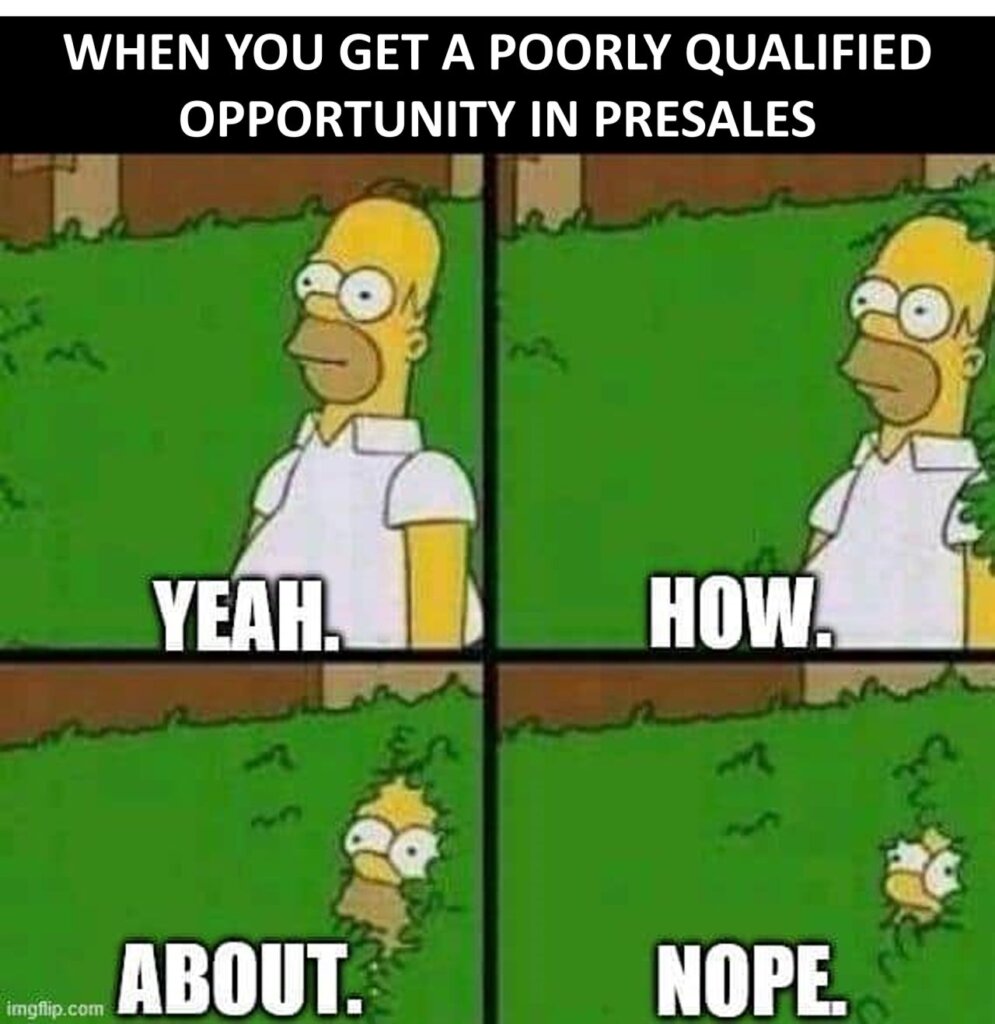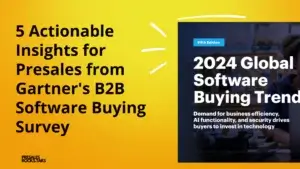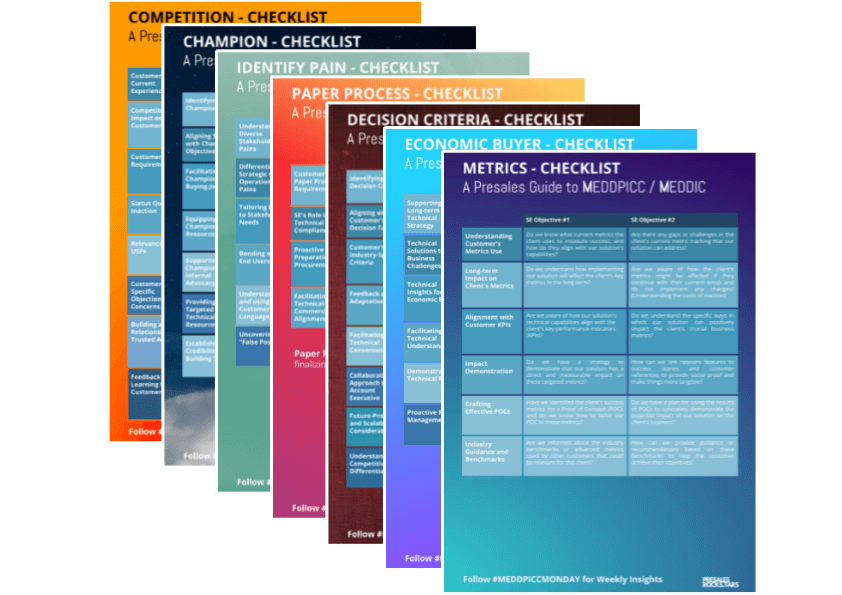Have you ever been involved in an Request for Proposal (#RFP), a #demo, or a Proof of Concept (#POC) and thought to yourself that the chances of winning are very low? It’s a common situation. 🤔
Choosing to let go of an opportunity is not about being uninterested or unhelpful; it’s about making thoughtful decisions to ensure success and value. 🚀

This is crucial because in presales, our job is to select the right opportunities, not just any opportunity.
Saying „no“ frees up space and time for opportunities where we have a better chance of succeeding. We cannot overlook the cost of pursuing opportunities that are unlikely to succeed, right?
Now, the question is, how can we politely decline opportunities within the sales organization without appearing uninterested or unhelpful?
How can we express our viewpoint without involving emotions?
- 1️⃣ Use Data to Communicate: Stay professional by basing your decisions on facts. Share past performance data to back up your decision, like, “In the past, our success rate for similar opportunities has been very low, under 5%.” 📊
- 2️⃣ Be Involved from the Start: Engage with the sales team early in the decision-making process. Discuss potential challenges and propose alternative solutions, creating a culture of trust and openness. 🤝
- 3️⃣ Highlight the Opportunity Cost: Show the bigger picture. Explain how the time and resources spent on less likely opportunities could be better invested in more promising ones. 🤑
- 4️⃣ Offer Alternative Solutions: Don’t just say ‘no’. Suggest other options, such as talking to the potential client before making a final decision, keeping the conversation constructive and focused on progress. ⏭️
In conclusion, learning to say ‘no’ in presales is about improving decision-making for the benefit of the entire organization. By approaching it with clear evidence, thoughtful communication, and strategic planning, we can change the perception of ’no‘ from a negative response to a strategic decision.
Let’s focus our efforts on the opportunities that have the most potential!





